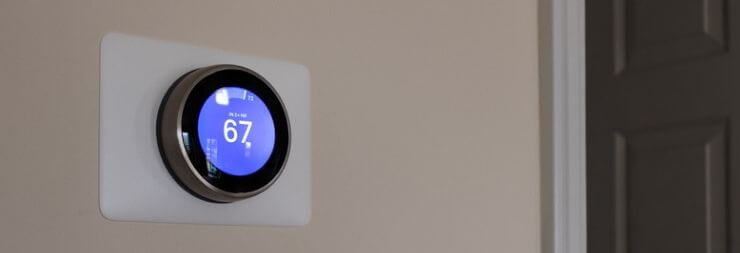When it comes to air conditioners, there are certain things that are common knowledge: You need to change your air filters regularly, you should call a technician if the system is too loud, and if you live in a household with several family members, you’re likely used to thermostat wars.
However, there are other factors that aren’t as well-known that would have a significant impact on the efficiency of the unit. One of them is the location of the thermostat.
Where Should You Position The Thermostat?
When you set a temperature on a thermostat, your intent is for the air conditioner to reach that setting, then cycle off. However, this simple task is not so clear-cut. Temperatures inside a home will vary depending on many factors: whether a particular room has a lot of windows, whether it’s facing direct sunlight at that time of day, ceiling height, insulation, and how many people are in the room. So, how does a thermostat know when your house has reached the desired temperature? This is precisely why positioning matters.
Where NOT to Place Your Thermostat
Let’s say your thermostat is located by the kitchen, laundry room, or a bathroom. Whenever someone cooks, runs a load in the dryer, or takes a hot shower, the thermostat will perceive a higher temperature. This means your AC will run for much longer, unnecessarily increasing your energy bills. The same thing can happen if the thermostat is placed on the inside portion of an exterior wall – the weather outside may affect the thermostat’s reading simply because the wall is either too hot or too cold.
What is the Ideal Thermostat Placement?
To solve this problem, make sure your thermostat is placed on an interior wall, near an area where your family spends most of their time: This can be in the family room, living room, or a hallway near the bedrooms.
If your thermostat is currently in such a location and your home still feels warmer than you’d like, there may be other issues you need to address, such as dirty filters, frozen coils, clogged drain line, or a refrigerant leak. The best way to prevent any of these from happening is to schedule preventive maintenance twice a year. Doing so will ensure a technician can spot potential issues before they become a problem, and extend the lifespan of your air conditioner.
AC Service in Brevard County
At Colman, we can help you with routine maintenance checks as well as to troubleshoot air conditioning issues. We also have a 24/7 AC emergency line. Call us if you need assistance ASAP, or to schedule routine HVAC maintenance.
24-HR Emergency Service: (321) 269-4565







Leave a Reply